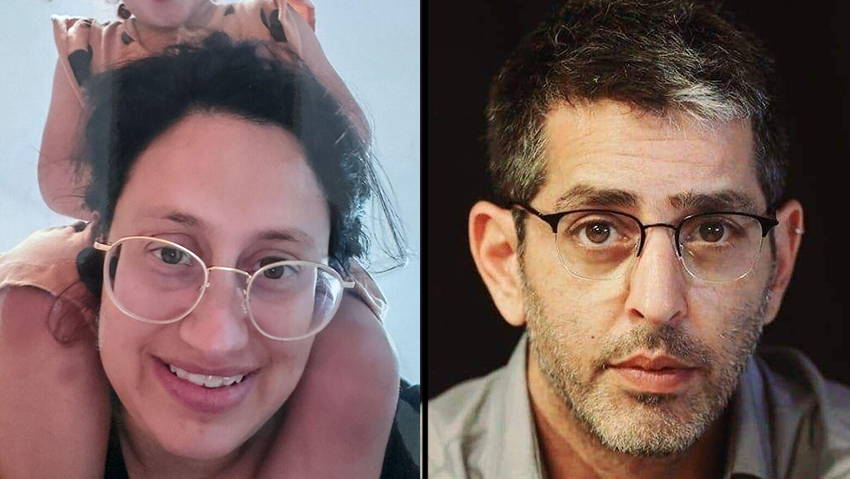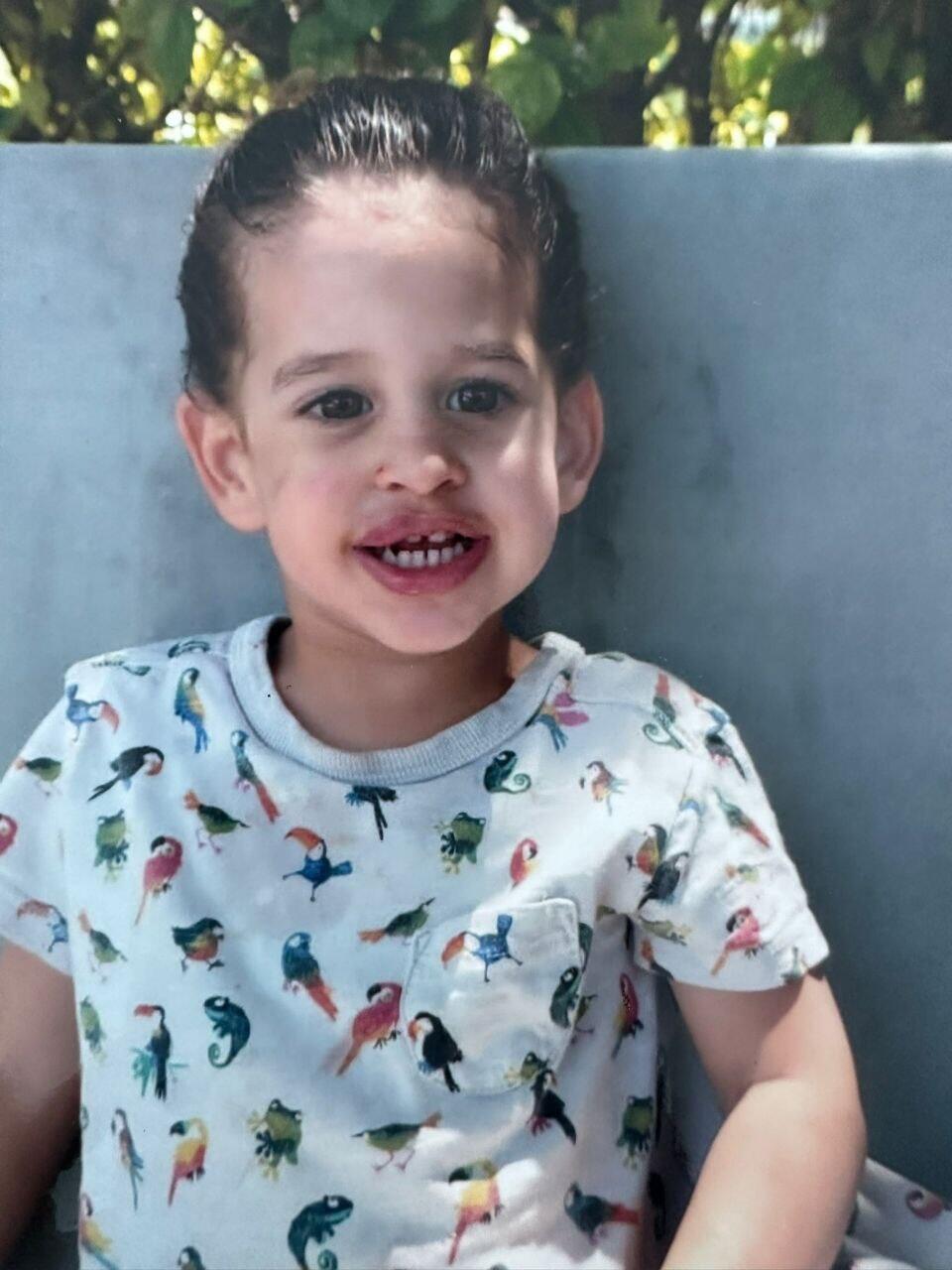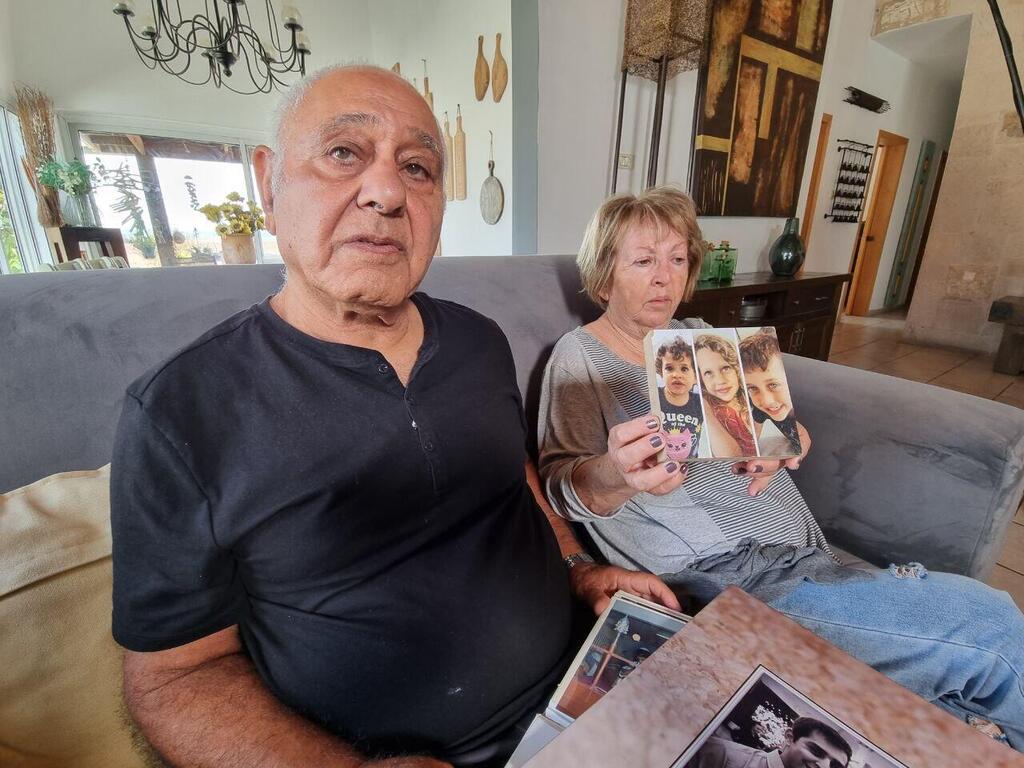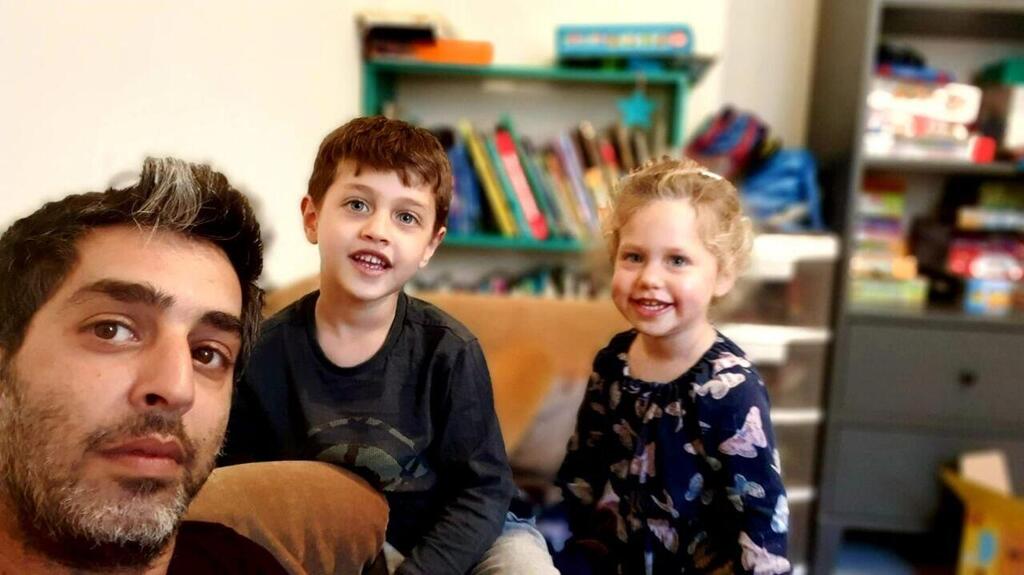Getting your Trinity Audio player ready...
The funeral of Roy and Smadar Edan
(Video: Tomer Shunem Halevi, Gadi Kabalo)
Shortly before he was killed, photographer Roy Edan, 43, who worked for Ynet and its sister publication Yedioth Ahronoth captured what would soon be revealed as a Hamas terrorist, approaching his kibbutz near the Gaza border on a glider. He sent the photo to the regional correspondent, Matan Tzuri, and asked him to investigate the matter. In hindsight, this was likely the initial documentation of the terror attack that led to the October 7 massacre.
Read more:
Shortly afterward, Edan was fatally shot near his home in the kibbutz Kfar Aza, and his wife, Samdar 40, was also killed. Their youngest daughter, 3-year-old Abigail, was abducted to Gaza with her neighbors. Their two other children, Michael, 9, and Amalia,6, hid in the closets of their home right next to their mother's body and survived.
For 11 agonizing days, Roy was considered missing, until his family received the devastating news of his body being identified on Wednesday. He and Smadar were laid to rest on Friday, accompanied by hundreds of mourners. "Our human compass no longer functions; we don't know where we're heading or what lies ahead," said Carmel Edan, Roy's father.
"The day of Roy and Smadar's murder was on October 7, 2023, between 6:30 and 7:30, their voices silenced forever. It's a custom unique to our country, unlike any other in the world, that a father buries his own son," his father said.
5 View gallery
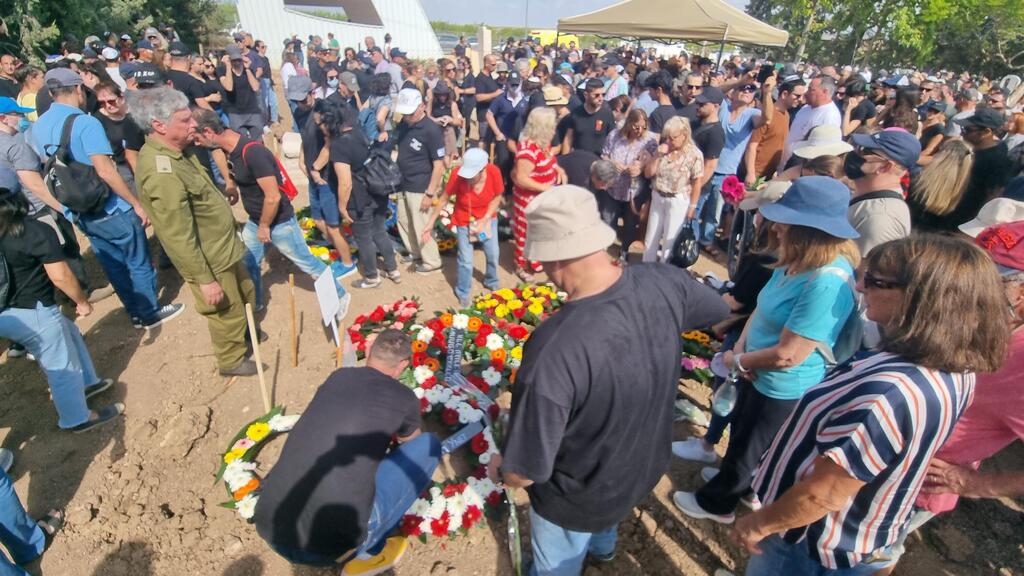

Hundreds accompanied Roy and Smadar Edan on their final journey
(Photo: Shmulik Dotfor)
"We are in absolute shock. Roy and Smadar, if you knew how brave your children, Michael and Amalia, were, you'd be so proud of them. The children witnessed the horror in their home, how Smadar was brutally taken from us. They hid in a safe room for 14 hours until they were rescued. It reminds me of how, 80 years ago, children used to hide in attics and cellars. Our little granddaughter, Abigail the three-year-old who is not with us, we won't rest until we see her again."
Liza, Roy's mother, also mourned. "I want everyone here to know that over the hill, this is our home," she said. "Every morning, when I step out onto the balcony, I see these cypress trees, when I sit and have my coffee, I talk to God. Today, I'll include Smadar and Roy in our conversation."
"I always teasingly scolded Smadar, telling her, 'Samdar, when Hamas starts shooting, let me know if you bring your kids unexpectedly. Maybe I'm not ready, maybe I have plans.' But it was always in jest, and we always welcomed the kids. In every operation, even at 4:20 in the morning, they brought the children, and we kept them safe. Later, they would transfer them to the Golan Heights. I will continue talking to God, and just as I tell him about the good and the bad, I'll share it with you too, because in our hearts, you're still with us. I love you."
Among the horrifying testimonies of the events that unfolded that day, one recording stood out—the chilling phone call between 9-year-old Michael, and his grandparents. "Grandpa," he said, "terrorists killed Dad outside the house, they killed Mom and Abigail inside. I'm alone with Amalia."
Carmel recounted, "Roy was shot outside the house with Abigail in his arms, and she managed to break free. Their 3-year-old wandered alone in the yard. A neighbor, Avihi, took her in and went to get a weapon. When he returned, after just five minutes, his entire family, as well as our granddaughter, had been abducted to Gaza."
In the evening hours of the cursed Shabbat, Roy's eldest brother, Ami, managed to establish contact with troops inside the kibbutz and directed them toward the house. However, Michael and Amalia, who were understandably terrified, refused to open the door. Carmel recalled, "The ynet and 'Yediot Ahronot' journalist, Ilana Curiel, made contact with the rescuers and waited for them under heavy fire at the kibbutz gate, just 200 meters from our house. She took my two grandchildren to a safe location. I awoke to sheer terror. For 11 days, we were in a state of uncertainty, and our hopes were shattered. I have no dreams left, and I've run out of tears. I grew up in a family of Holocaust survivors, and it feels like we've returned to those dark days."
The first Hamas terrorists that infiltrated Israel, and the last video Roy Edan captured
(Video: Roy Edan)
Roy Edan grew up in Kfar Harif, a moshav situated between Kiryat Malachi and Gedera. He was the second son in his family, with an older brother, Ami, and younger siblings, Gilad and Dafna. Approximately 17 years ago, Roy arrived at Nahal Oz as a youth counselor, where he resided until he and Smadar built their home in her kibbutz, Kfar Aza.
Roy was a professional photojournalist, equipped with his camera lenses from his high school days. He was driven by a passion for capturing every event, particularly in the Gaza envelope region. Despite the security challenges, he never considered leaving. "Even in high school, he studied photography, and that bug has stayed with him ever since," his sister, Dafna, shared. "He also taught photography, and he loved the fieldwork."
In addition to his ongoing coverage of events in southern Israel and security-related incidents, Edan had a deep love for nature photography. Three years ago, he completed a magnificent project, spending four days meticulously tracking a massive flock of common starlings during their migration in the Western Negev.
(Video: Roy Edan)
"He was a frontline photographer," describes Sharon Solomon Asman, Deputy Editor-in-Chief at Ynet. "He was both a fighter and a fieldworker who brought voices and images from every arena and event to our readers and viewers. He adored the South and was passionate about his work as a photographer. We are stunned and grieving."





